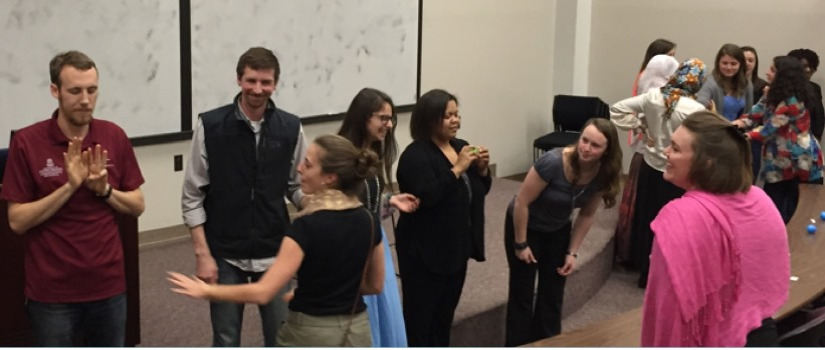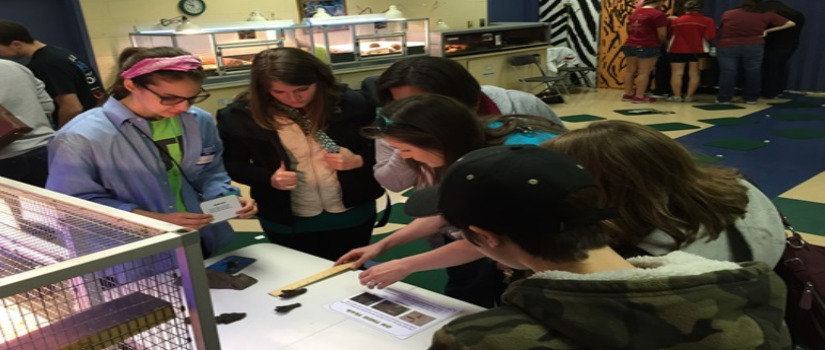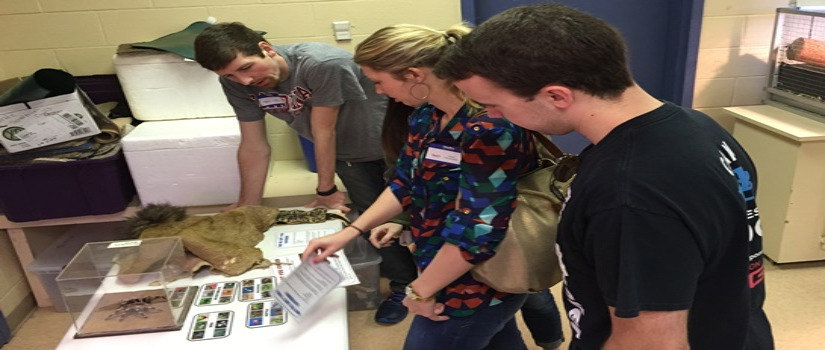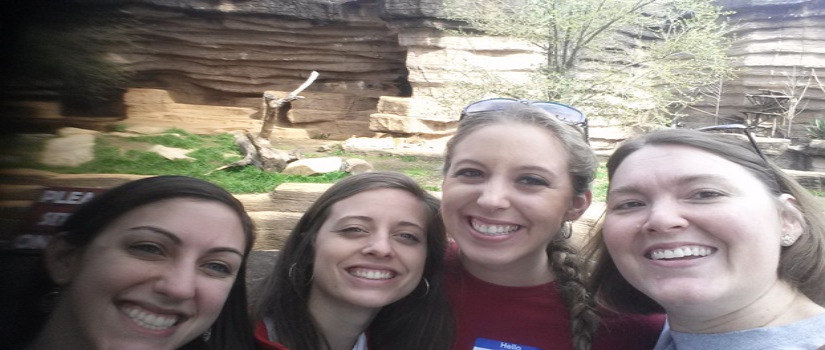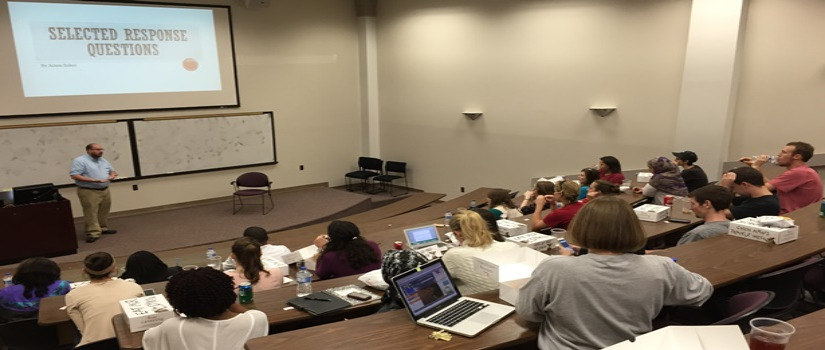The College of Education's Science and Math Teacher Initiative (SMTI) provide
CSI inquiry based learning, assessment writing tips and TI-Nspire technology training.
Last Friday, March 20, the USC Science and Mathematics Teacher Initiative Noyce Scholars were joined by Matt Owens and Jamila Gadsden at the College of Education training session on the TI-Nspire -- product line in a series of graphing calculators developed by Texas Instruments that is capable of plotting graphs, solving simultaneous equations, and performing other tasks with variables. This The likely target of the TI-Nspire is secondary schools that make use of the TI-84 Plus currently or have textbooks that cover the TI-83 (Plus) and TI-84 Plus lines, and to allow them to transition to the TI-Nspire line more easily. It was a great training and many of our scholars were given a free license to Nspire software or TI-84 software!
The next day, the SMTI group of teachers traveled to Riverbanks Zoo for a CSI class demonstrating inquiry based learning by following the clues to solve a wild crime! They examined forensic science to observe and categorize evidence about animals through interactive scientific skill stations and animal encounters. The scholars then had some free time to roam around at the zoo to make new discoveries and observations.
Upon their return to USC, the scholars had lunch and a session on assessment writing tips by Adam Sokol, Graduate Assistant for the Noyce Project and a doctoral student in Educational Psychology, Research, and Foundations. Scholars learned about research-based practices for writing solid selected response test questions like multiple choice or matching.
Dr. Jan Yow, Noyce Project Director shared, “The weekend conference was a nice mix of formal and informal opportunities to think about integrating STEM more deliberately into our teaching. Kathy Henson, our Noyce Program Coordinator, did an excellent job of organizing a variety of sessions to apply to both the mathematics and sciences. In addition, the assessment writing session addresses the great need to continue to learn more about research-based ways to assess student learning so we can determine what students truly know to better adjust our teaching.”
